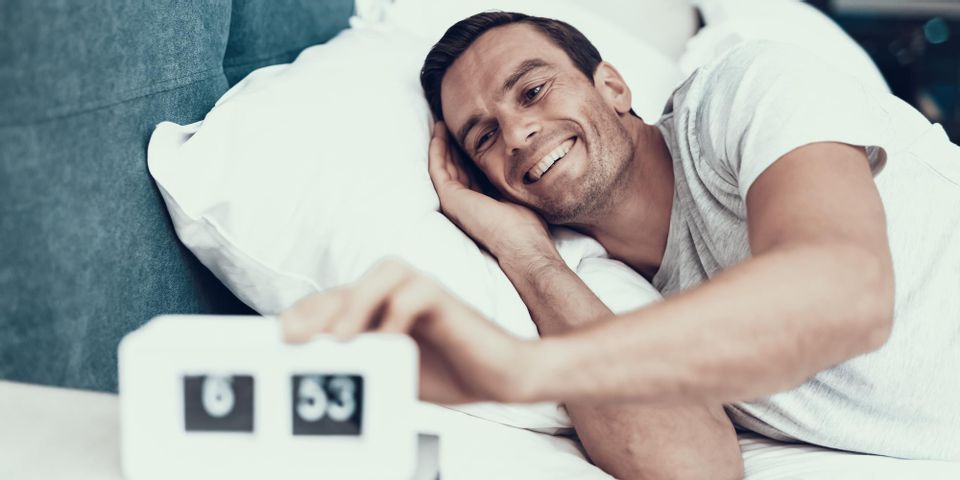How Does Sleep Hygiene Impact Mental Health?

Sleep hygiene refers to the practices you adopt to get a good’s night rest. When you have good sleep hygiene, your body uses its natural restorative properties to replenish cells, repair tissue, and leave you feeling full of energy for the next day ahead. However, high-quality rest does more than impact your body — it can also have a major impact on your mental health. To help you get the most out of your shut-eye, here’s what to know about this important topic.
How Does Sleep Hygiene Impact Mental Health?
In some cases, symptoms of mental health conditions can affect sleep quality. For example, individuals with anxiety and ADHD often experience insomnia. Those with bipolar disorder, however, may have insomnia during manic phases but sleep excessively during depressive episodes.
 Poor sleep can also influence mental health. While the mechanisms behind their interaction are not fully known, there are some clear connections. For example, sleep helps lower blood pressure and heart rate, which in turn can help reduce feelings of stress. Periods of deep sleep, also known as REM sleep, influence hormone and neurotransmitter production. These components play a role in dictating emotional health, and if imbalanced, can contribute to many mental health conditions—such as depression and anxiety.
Poor sleep can also influence mental health. While the mechanisms behind their interaction are not fully known, there are some clear connections. For example, sleep helps lower blood pressure and heart rate, which in turn can help reduce feelings of stress. Periods of deep sleep, also known as REM sleep, influence hormone and neurotransmitter production. These components play a role in dictating emotional health, and if imbalanced, can contribute to many mental health conditions—such as depression and anxiety.
What Can I Do to Improve My Sleep Hygiene?
Undergoing treatment for a mental health condition, such as through therapy and prescription psychiatric medications — can improve sleep quality. However, managing mental wellness also requires good sleep hygiene. Some ways to improve the way you rest include the following:
- Sticking to a routine: Since sleep works as a cycle, it’s important to go to bed and wake up around the same time every day—even during the weekends.
- Preparing for sleep: Creating and maintaining a pre-sleep practice that helps you wind down and prepares you for sleep can be helpful, e.g. reading, meditation, or a hot bath.
- Creating an ideal environment: To improve your rest, make sure your room is cool, dark, and quiet so that you’re not exposed to disruptive stimuli. You should also avoid using screens in bed since a device’s blue light can repress the production of melatonin—a hormone that influences your sleep-wake cycle.
- Maintaining an active lifestyle: Regular fitness helps individuals sleep better and can improve energy levels during waking hours.
- Eating well: No food an hour before bed; eating processed, fatty, or sugary foods soon before bed can reduce one’s quality of rest. Similarly, drinking caffeine any time later than the afternoon may contribute to insomnia.
- Sober sleeping: No alcohol an hour before bed. It may seem counterintuitive, but alcohol can interfere with the restorative REM sleep.
- Getting enough light: Naturally, sunlight helps dictate the sleep-wake cycle. Without it, your body may not know when it’s time to wake up or fall asleep. In Alaska it can be helpful to use light therapy during the winter, and to limit light exposure during the long, bright nights of summer.
Sleep hygiene is just one of many factors that influence emotional wellbeing. If you’re experiencing symptoms of a mental health condition, it’s important to consult with a professional, like those at Fairbanks Psychiatric & Neurological Clinic APC in Fairbanks, AK. Serving children and adults, these experienced therapists will review symptoms to accurately diagnose and treat common conditions—including depression, anxiety, PTSD, and ADHD. To learn more about their compassionate and personalized approach to wellness, visit this mental health clinic online. Call (907) 452-1739 to start the scheduling process to either see Sally Caldwell, LPC-S, or Kjersti Bowen, LCSW.
Special thanks to Kjersti Bowen, LCSW, for her contributions to this article.
About the Business
Have a question? Ask the experts!
Send your question

